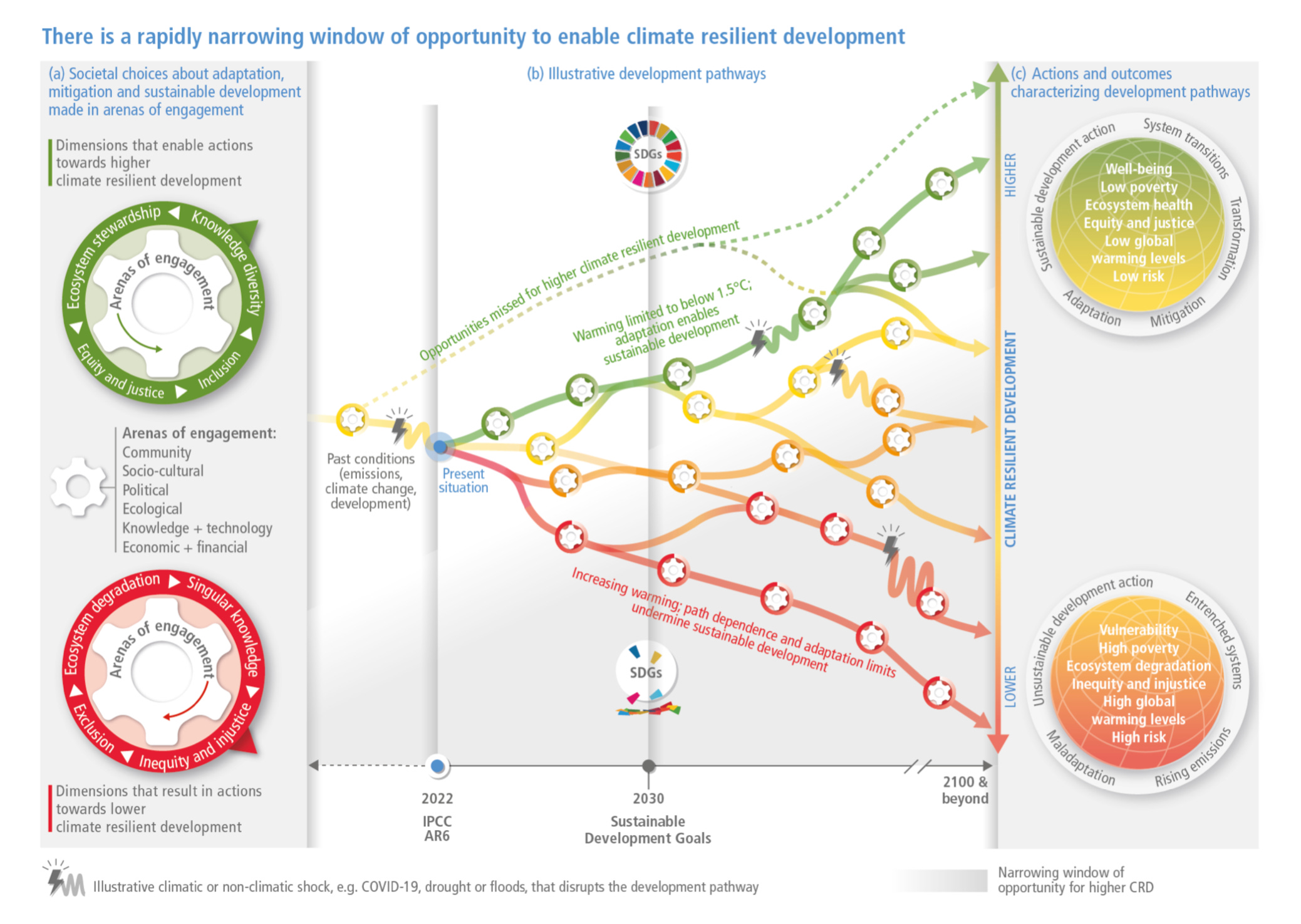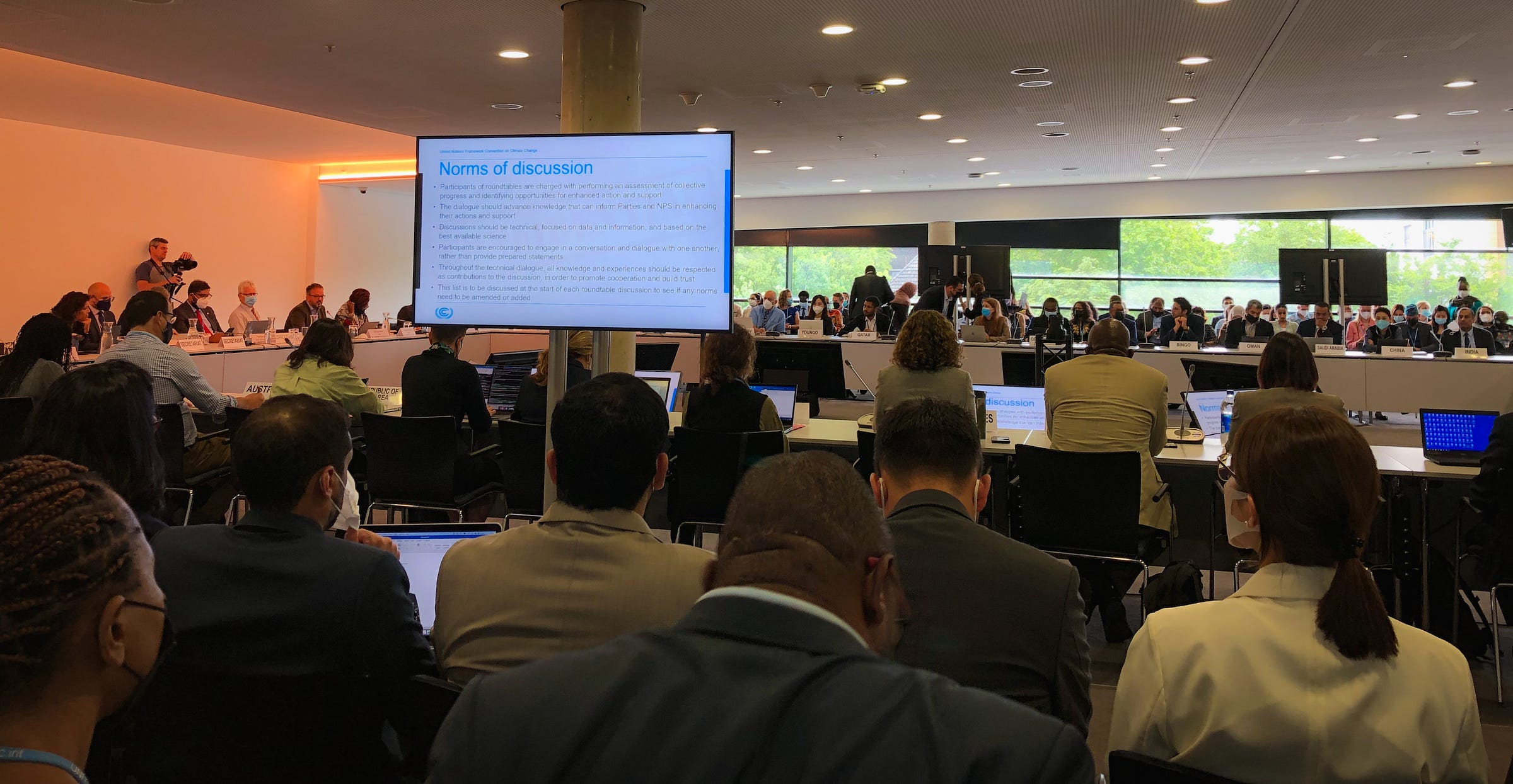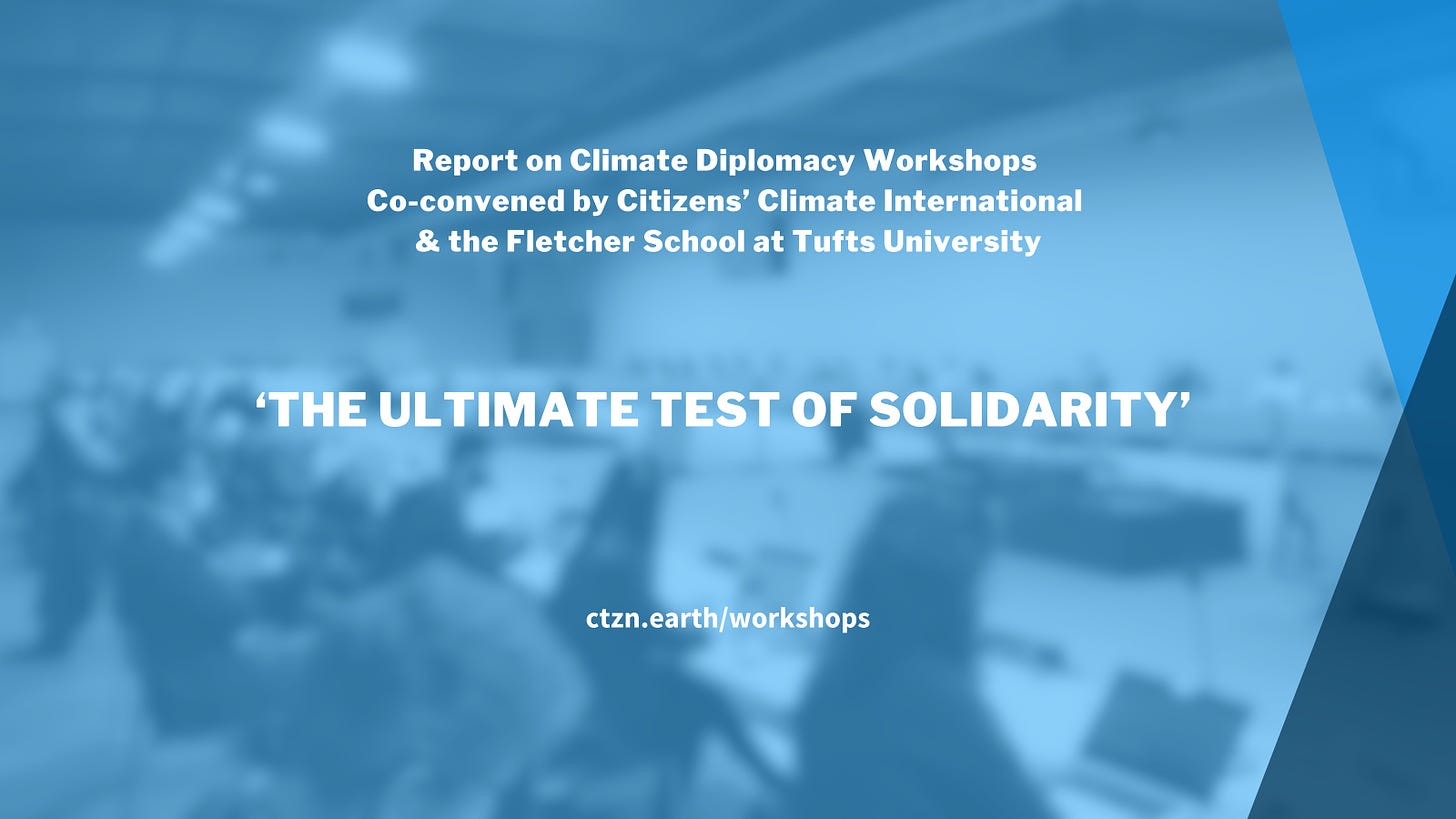If there is one overarching takeaway from Week 1 of the SB56 round of UN Climate Change negotiations in Bonn, it is that national governments need far more active, regular, robust input and follow-on action capability from local communities. Stakeholder engagement helps make sense of the bigger-than-market questions governments are tasked with addressing.

Without enhanced, ongoing engagement, critical action insights from the human scale will be left out of high-level briefings. As a result, decisions about what has significant pressing and long-term value will be more likely to be based on incomplete information or skewed priorities.
High-level, long-term goals, informed by science, can be set by leaders at the international level:
Prevent dangerous anthropogenic interference with the climate system;
Limit global heating to 1.5ºC or lower, to achieve that goal;
Reduce global heating emissions across whole economies, and achieving net zero or better by mid-century;
Deliver at least $100 billion per year to assist developing countries in achieving climate-resilient development in line with the above goals;
Reduce risk and build resilience, while funding recovery loss and damage and fostering sustainable development.
But even these overarching goals, when put into detail, need to be informed by experience at the human scale. Week 1 of the SB56 saw room after room dealing with questions of how to address nonlinear cascade effects—impacts and solutions interacting with other factors, resulting in events that compound each other’s effects and change what is possible, plausible or likely.

Nonlinear cascade effects are going to be part of our climate future, either because of transition dynamics or as a result of changing planetary systems—or more likely: both. This means we will always be in need of specialized and detailed information we haven’t looked for before.
Engagement, inclusion, and learning to work on the basis of local subjective inputs integrated with broader dynamic information systems, will make it possible to achieve far higher precision in policy, development, crisis response, and investment decisions. During Week 1, we heard the need for robust, ongoing stakeholder engagement and participation in decision-making, in relation to:
Assessing the delivery, impact, and community-level empowerment of climate-related finance and investment
Defining the Global Goal on Adaptation
Mobilizing adaptation and resilience measures
Developing a Loss and Damage Finance Facility
The Koronivia process on agricultural transition
Reinventing international cooperation to allow global systems to respond to and interact with local communities in the context of the specific climate impacts and related challenges they are facing
Transparency and evaluation across integrated policy frameworks
Technology transfer and related sustainable development efforts

We were encouraged to hear human rights treated as central to Action for Climate Empowerment (ACE), during Week 1. We look forward to an Action Plan that commits all Parties to honoring human rights in policy and in practice, and facilitates coordination to ensure best practices make this commitment a reality.
We also take note of the role that ACE activities can play in providing the stakeholder engagement and participation sought by other thematic areas of work in the UNFCCC process and in national policy processes. We encourage Parties to view ACE as a toolbox for enhancing and accelerating successful climate resilient development.
The in-session workshop on a framework under Article 6.8 of the Paris Agreement and the meetings of the Glasgow Committee on Non-Market Approaches provided a window into how important stakeholder participation will be for grounding these cooperative activities in real-world impact. We outline a partial provisional list of non-market approaches in our formal submission and in our report from the SB56.
On Finance, many of the long-running difficulties remain. The current situation is additionally stressed by supply chain disruptions and multiple converging crises. The costs of inaction are rising; compounding costs of unfunded loss and damage risk permanently degrading the capacity of many nations to aggressively transition to climate resilient development scenarios.
Observers and small island negotiators cited the $12 trillion mobilized to mitigate the COVID emergency, in early 2020, as evidence the resources exist and can be strategically deployed to help nations, and communities, in overcoming loss and damage. Both private and open discussions highlighted the rising costs from direct climate impacts to developed countries as well.


We welcome signs that there might be a possibility of industrial countries supporting a Loss and Damage Finance Facility, if the facility is tasked with coordinating the optimal flow of resources to addressing and overcoming loss and damage. Such emerging discussions do not yet mean there is consensus on new international funding, but they do make it more likely a facility can be agreed in Sharm el-Sheikh in November, with its modalities and funding flows to be worked out in 2023.

Because finance discussions are examining how to streamline and expand access to climate finance, we have drafted a short note on the challenge of getting capital to communities. The Capital to Communities note recognizes rights to a livable climate future, to engage in policy design and implementation, to access, share, and act on climate-related information and innovations, and also the rights to restoration (funding to overcome loss and damage, or FOLD) and resilience (finance for adaptation and resilience measures, or FARM).
Takeaways
Integration – Many discussions throughout the week called for integration—across goals, strategies, sectors, and regions, and between stakeholder groups and local needs and priorities. Cooperative and integrative “non-market” approaches appear to be gaining traction a way to bring mainstream capabilities to the climate challenge and to deal with global crisis response.
Inclusion as Acceleration – All of this is about opening new terrain for collaborative international climate action, and for accelerating national plans for energy transition, shifting to climate-smart agriculture and zero emissions standards across sectors. Integration can be advanced by inclusion, by Parties welcoming Observers to steer each segment of the process to higher ambition. A multidimensional approach is needed to deliver transformational climate action that fosters everyday health and wellbeing.
Loss and Damage require immediate, real-world attention, as well as support for ongoing recovery and restoration. Uncompensated loss and damage include degraded landscapes, reduced food security, loss of community, cultural heritage, and forced migration. Loss and damage also lead to the depletion of national resources, the fraying of the social contract, and the weakening of national capability to act on climate. Overcoming loss and damage is a shared global imperative.
Data systems are climate action – Climate data is necessary to produce the science on which all climate crisis analysis and response is based. Now, data integration and multiplatform data systems are becoming necessary, not only for climate science, but as ways to track, measure, and enhance everyday decision-making.
Climate Diplomacy Workshops
From May 31 through June 2, Citizens’ Climate International and the Fletcher School at Tufts University teamed up to host a series of trainings for diplomats and observers, ahead of the SB56.
The Workshops aimed to provide participants with the ability to enter the UNFCCC venue with the awareness, references, tools, and adaptive capacity required to keep their footing on uneven ground where new developments constantly threaten to disrupt well-founded strategic priorities.
Additional background
Earth Negotiations Bulletin daily briefs
The Earth Negotiations Bulletin, from IISD, covers the process in detail, and provides overview reports on each major segment of each day.
Mon, June 6: https://enb.iisd.org/bonn-climate-change-conference-sbi56-sbsta56-daily-report-6jun2022
Tue, June 7: https://enb.iisd.org/bonn-climate-change-conference-sbi56-sbsta56-daily-report-7jun2022
Wed, June 8: https://enb.iisd.org/bonn-climate-change-conference-sbi56-sbsta56-daily-report-8jun2022
Thu, June 9: https://enb.iisd.org/bonn-climate-change-conference-sbi56-sbsta56-daily-report-9jun2022
Fri, June 10: https://enb.iisd.org/bonn-climate-change-conference-sbi56-sbsta56-daily-report-10jun2022
Sat, June 11: https://enb.iisd.org/bonn-climate-change-conference-sbi56-sbsta56-daily-report-11jun2022
CCI submissions and briefing notes
Citizens’ Climate International has issued detailed briefs to the process, on:
We have also reported on:
Article 6.8 talks in Bonn: Nations can team up to accelerate decarbonization and build resilience
Civics: Open societies as key for achieving a better future for all of humanity
Food: Ways in which Article 6.8 of the Paris Agreement can be an engine for food security
Finance: Financial Integration and Inclusion Needed to Get Best results from Glasgow Outcomes
CAN International links
Overview of SB56: https://climatenetwork.org/can-event/sb56/
Expectations for SB56: https://climatenetwork.org/resource/can-briefing-expectations-for-the-unfccc-sb56/
Loss and Damage Finance Facility: https://climatenetwork.org/resource/executive-summary-loss-and-damage-finance-facility-why-and-how/



